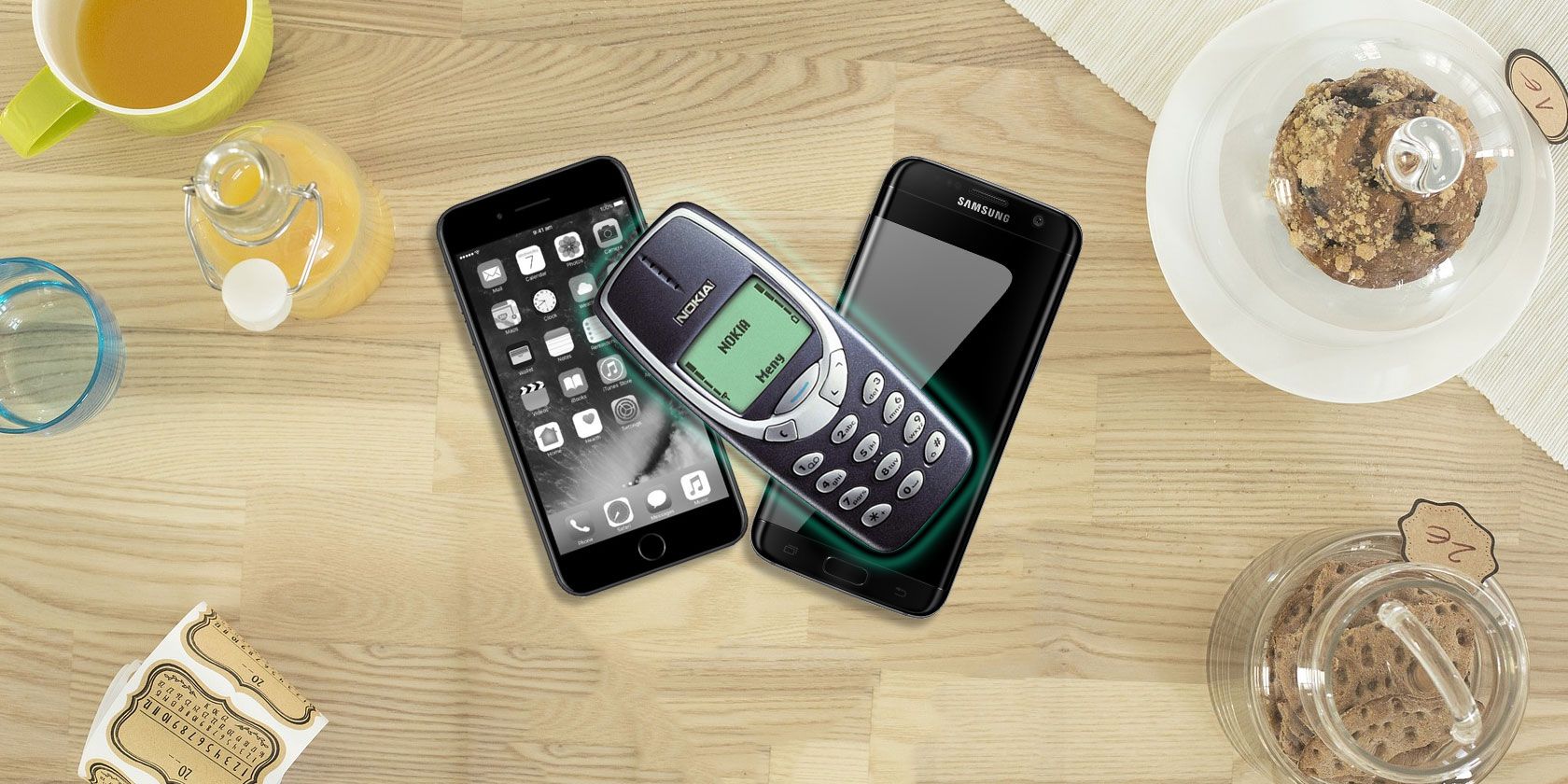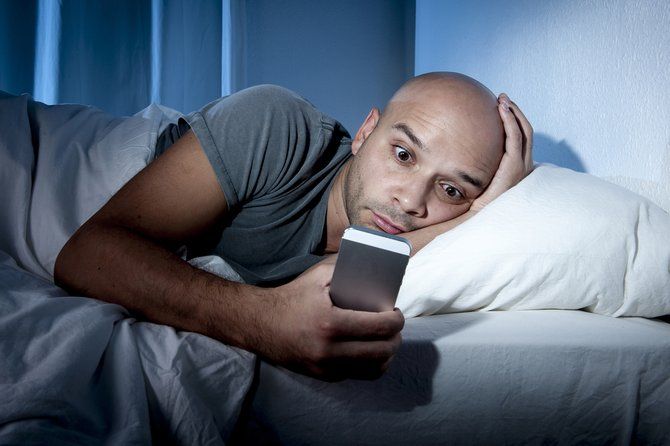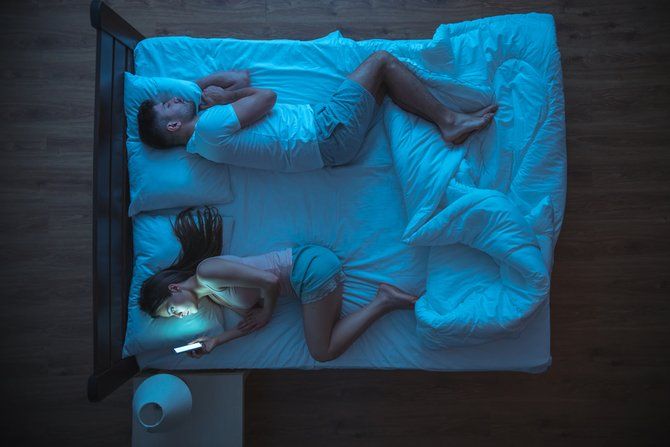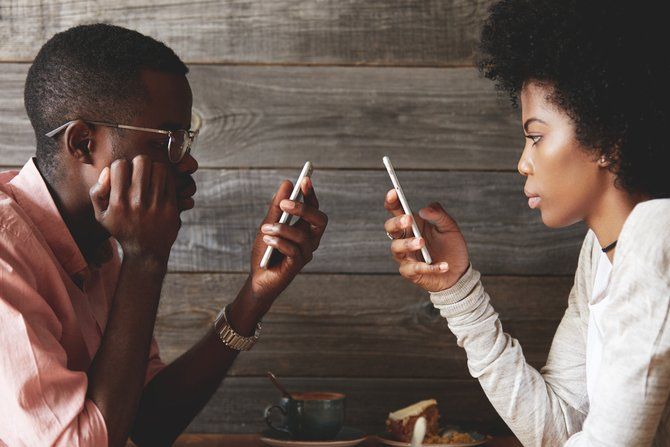During the early months of my son's life, I became acutely aware of every time I pulled my smartphone out around him. During those moments when he wanted nothing more than to look into my eyes, I wanted to look into a screen. Why?
I didn't do it often. My aversion started before my son was born. After spending years writing thousands of posts about Android, I became uncomfortable with the amount of attention I was giving smartphones. And not just me. Some politicians and religious figures wish they could draw as many eyeballs as Google I/O.
When I graduated from college in 2012, most of my friends didn't have smartphones. The boom was well underway by then, but you could say we were late to the party. Now all of my friends have one. If there's a slow moment at home or out in public, someone's staring at their phone.
A social network or game is more important than interacting with one another. We send this message to our friends, colleagues, family members, and lovers. We claim to have control, that we aren't interacting with these devices anymore than we want to -- but that's just it, why do we want to?
Apple, Google, and legions of app developers put more thought into human psychology than most smartphone users. Their business models center around holding on to our attention longer than their competitors. They know how to make us want, even crave, what most of us would say we don't care all that much about. Ex-Googler Tristan Harris had this to say in a 2016 interview with The Atlantic:
"You could say that it's my responsibility to exert self-control when it comes to digital usage, but that's not acknowledging that there's a thousand people on the other side of the screen whose job is to break down whatever responsibility I can maintain."
I recently decided to switch from a smartphone to "dumbphone." I may have already given you an idea why, but there's more.
I Don't Think Smartphones Are Good Phones
I still consider the primary purpose of a phone to make calls and receive texts.
Of all the smartphones I've owned, my first one (the obsolete-at-birth Kyocera Milano) may have been the best as a phone. It didn't take up much space in my pocket, had a great keyboard for texting, and the battery could last for days. The pixelated screen and minuscule storage space made it a miserable smartphone, but it was a decent handset.
When I bought the HTC One M7, it was the most I had ever paid for a phone -- nearly $600. It remains the Android smartphone I look back on most fondly. But it felt awkward in my hand, and at over half a grand, the idea of dropping the phone, losing it, or having it stolen was terrifying.
I went through two Nexus 5s, and both had a bug where they would randomly not receive calls or texts and not offer any indication whatsoever that anything was amiss. Each also had battery life that was nearly dead in the early afternoon, regardless of how much I used them. Due to their powerful processors, large displays, and various radios, smartphones don't hold a charge anywhere near as long as flip phones.
I had a better experience with the 2015 Moto G. In general, I think cheap smartphones do better jobs than flagships.
But luxury and budget phones alike are all largely identical flat slates. Gone are the days when manufacturers differentiated by making phones more comfortable to hold, when the primary difference had more to do with hardware design than software. I like physical keyboards, and typing on a touchscreen has never given me the same satisfaction. I don't want my phone only one inch away from being a seven-inch tablet.
But there's an aspect of phone design that rankles me even more.
I'm Bothered by Planned Obsolescence
Smartphones come with an expiration date. On Android, you're lucky if you get two years of updates. After that, you can continue using your phone, but you will eventually start to feel the effects.
If you're an enthusiast, you won't get the new features you see on your favorite blogs. Even if you're rather apathetic, you'll eventually lose access to some of your apps because they require a newer version of Android than what you have.
This means, by design, most smartphones will be obsolete after only a couple of years. Many don't make it that long. This planned obsolescence is terrible for our wallets and the environment.
I don't feel comfortable encouraging this kind of behavior. No, it's not limited to smartphones. Dumbphones filled landfills long before that, and many carrier plans were designed to encourage upgrading every two years (smartphones merely inherited the two-year contract). But if you wanted to use the same phone year after year, you could, and you weren't really missing out on much if you did.
I Don't Need More Distractions
Each new version of Android promises new functionality. After years spent covering Android, including here at MakeUseOf, I've grown jaded.
I don't want to use voice commands to launch apps or search more easily. I'm not interested in virtual reality. I don't want shortcuts on my lockscreen, nor do I need unread counts on app icons. All of these are reasons to pull out of the present movement and engage with my phone.
I've made many efforts to make my smartphones less distracting. I've written about how to use them more mindfully. In removing Google Play from my phone, I prevented access to millions of apps. I kept only apps that served a functional purpose, such as the alarm clock and GPS navigation. I disabled email and the web browser. I left only music and podcasts as means of entertainment, since they didn't require looking at the screen (in theory).
But there were still idle moments when I scanned through lists of podcasts absentmindedly, thinking maybe I should be listening to something. It was my version of turning the TV on and flipping through channels just because they were there.
Leaving the browser disabled helped, but it still only took a few taps to undo that change. It remained too easy to entertain any thought that popped into my mind, too easy to lose an hour of my life falling down a Wiki hole reading information I needed to know for no reason other than a podcast mention or clever hyperlink (you're welcome).
There are apps whose entire purpose is to get you to put down your phone, but I wasn't someone trying to stop spending all day staring a screen. I wanted to reduce the number of times my phone intruded into my life, pulling me out of sometimes priceless, sometimes mundane moments that I could never get back. Time is not something we can get more of -- at least, not yet.
I Don't Want to Sleep With My Phone
Many of us are married to our phones, whether or not we've signed the papers. Those of us in committed relationships have invited strangers into our beds, often without our partner's consent.
We tell our partners goodnight, then roll over to spend time with our true loves. Our phones are the last things we see at night and the first things we reach for in the morning. You could describe them as the most intimate relationship in our lives.
This is a hard pattern to break. Smartphones have replaced so many things. They're our nighttime reading. They're our source of relaxing music. They're our alarm. They're our morning dose of news. They tell us the time. Without active effort, the smartphone isn't leaving the bed.
For couples, the bedroom is a place for intimacy and connection. It's also a place for sleep. Smartphones don't help with any of that. They ruin our sleep, and they have a tendency to make the few inches between people feel like a chasm. Reaching for a phone during a night time conversation can feel like rejection, a major reason phones are now contributing to conflict and depression in relationships.
At the end of my life, I will cherish all of the moments I shared with my wife. I can't say the same for my phone. One of them will no longer get so much of my time.
You Matter to Me
Romantic relationships are not the only important ones. We all have family members, friends, and acquaintances that make up our lives. Our ability to connect with them is also impacted by phones.
This isn't new information. Studies go back years showing that even the mere presence of a phone can diminish the quality of our interactions. It doesn't have to be in use. Scientific American covered one such study in 2012:
"The pairs who conversed with a cell phone in the vicinity reported that their relationship quality was worse. The pairs also reported feeling less trust and thought that their partners showed less empathy if there was a cell phone present."
It doesn't matter if you're one of my closest friends or a stranger I strike up conversation with at a yard sale. I want you to feel that you have my attention. This can be a struggle due to our personalities alone. I don't want a device to make connecting with another person harder than it already is.
A basic phone can have the same effect, but at least there are far fewer reasons to have it out in the first place.
I Want to Set My Own Values
App stores and social networking apps encourage us to determine something's worth by its number of downloads or followers. App startup culture is less about offering society a true benefit and more about hooking millions of people onto a simple concept and eventually getting rich when a tech giant buys your company. Marketing is more important than creativity.
It's not important if a product is built to last. What matters is that it's new. The same is true of information. Who has time to read a longform piece? Who cares how much time and effort went into researching a story? Websites and social media feeds put new information at the top and bury old posts. They highlight content with the most shares. What's new and what's popular spreads. Whether something is good isn't relevant.
With enough exposure, we tie our own self-worth to likes and shares. We find it hard to find value in actions that no one else knows about. We're increasingly uncomfortable with momentary silence and solitude. The constant barrage of information and the urge to respond discourages spending time on lengthy contemplation. Many of us live lives that are more shallow and superficial than the lives we want.
Getting rid of my smartphone doesn't isolate me from these influences entirely, but it does stop me from carrying them around everywhere I go.
I Hope to Set a Good Example
Returning to the beginning, I'm a father now. My son is learning how to walk and learning from everything I do. Kids pick up on aspects of our behavior that we don't even notice. I don't want to send the message that what happens on a phone screen is more important than the people around me and the moments we share.
Even in my downtime, I don't want to teach that staring at a screen is the best way to spend my day. I cherish books and reading. I love getting out in our garden. I'm someone who enjoys being active. I'd much rather my son learn to pick up a paintbrush, want to go hiking, or learn how to build.
I want my son to learn how to make his own fun alone in a room. Embracing boredom can lead to beautiful things. It's how you're reading this now. I developed a passion for writing during the many hours I spent alone growing up in a time before ever-present internet. I can't expect my son to deal with boredom in a healthy way if I can no longer deal with it myself.
So That's Goodbye
I could go on, but many of the reasons to get rid of a smartphone are the same that motivated one MakeUseOf author to resist buying one for so long.
I've gone a week or two without a smartphone now. So far, I don't miss anything. I feel lighter. When curiosity pops into my head, it's easier knowing that I can't search for an answer right now rather than being able to but having to resist. There's a certain freedom that comes from letting go and doing without.
That said, I'm not hailing dumbphones as some magical solution. I remember the concerns over cellphone addiction in the pre-smartphone days. My best friend in high school was always texting once he got a phone. He was hardly alone.
This is still a device that I take with me everywhere, and at any moment, a phone call or text can snatch me out of the present moment. But at least when the conversation is over, there isn't an app icon tempting me afterward. Life is now a bit easier to manage. Funny, considering that was supposed to be one of the perks of buying a smartphone in the first place.
What's your relationship with your smartphone? Is it a healthy one? Cordial? Or is your phone an insatiable nag? You don't have to get rid of your smartphone to make a change. What approaches have you tried? What would you recommend for others? I'll be keeping an eye out for your stories in the comments below!






